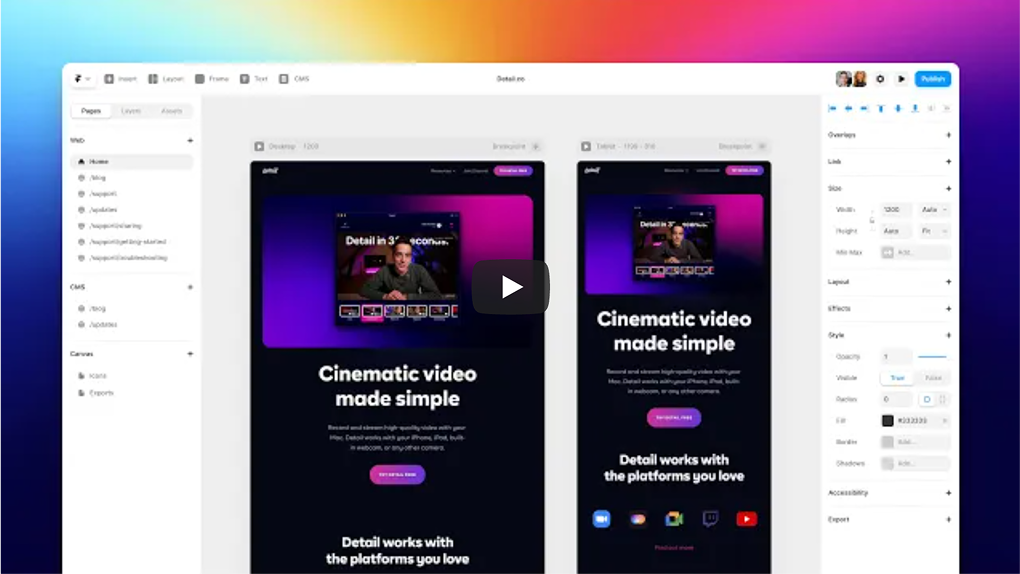
The Business Impact of Investing in Employee Experience
May 31, 2023

There’s been an evident shift in the world of work ever since the pandemic hit. With remote work and virtual communication becoming the new normal, organizations have been forced to reevaluate their approach to employee training, development, and support. Perhaps the most significant change has been the focus on employee experience and investment. Organizations have adjusted their approach to employee development during the pandemic and technology has played a huge role in employee care and productivity. However, navigating this shift hasn’t been easy.
The Ever-Evolving Employee Experience
There has been a significant shift in the way organizations approach people strategy. The focus now is more on the employee experience, and it goes beyond just basic training and ensuring that people do their technical work well. We recently spoke to Naveen Manshani, Director, Total Rewards at the UnitedHealth Group. He said, “What I have observed in the hospitality and retail sectors is that organizations give customers a particular type of experience through their employees who cater to them. The kind of experience that customers have with an organization is determined by the employees’ training and the experience that they themselves have within the organization.”
This makes a lot of sense because unless employees are equipped at work, they’re most likely to not deliver quality. If employees are not offered a good experience with their organization, they cannot give customers a fantastic experience. With the pandemic, organizations realized the need to invest in their people beyond what they’ve been doing. Many organizations went above and beyond to support their employees during the pandemic. Getting the care and support from their organization took employee commitment to the next level and unlocked productivity which organizations are now looking at holding onto and amplifying as they move forward.
Organizations that took the time to ensure that their employees were supported are the ones that thrived in the pandemic and will continue to in the future. Employees who experience support, recognition, respect, and pride from their organization can work with reassurance and dedication. In turn, their commitment and positivity can lead to increased productivity and a better work culture. Organizations have a responsibility to invest in their people as they are the key to an organization’s success.
A Shift in Employee Training and Development
Organizations have over the last few years been forced to adapt to new ways of conducting business, and this shift has also affected employee training and development. Many companies have moved their training programs from in-person to online, creating a virtual environment for their employees to learn and grow. This has allowed employees to continue to receive necessary training while also being flexible with hybrid working.
In addition to training, companies have also had to shift the way they support their employees. Managers have had to learn how to support their employees virtually, and companies have had to provide virtual healthcare and onboarding experiences. The investments made by companies have had a positive impact on employee engagement and overall commitment to the organization. This investment is important, especially for a new generation of employees who joined the workforce virtually and are looking to be invested in by their employers.
In his conversation with us, Naveen laid down a few way in which companies can invest in the growth of their employees.
- Individualized Approaches to Employee Development: Different organizations use different approaches to develop their employees. Some offer reimbursement for training expenses, while others develop a program to measure the initiatives’ impact on employees. The key is creating a program that meets the individual needs of employees. Understanding what employees want can help design a framework that allows individuals to choose what they want and meet their individual needs. The design of such a program is crucial for its success.
- Equipping Teams for the Future of Work: While approaches to employee development will vary across industries and companies, one common thread is investing in people’s development to equip them for the future. With technology, the employee development experience will change further. The use of technology to develop people will evolve to use virtual reality, artificial intelligence, and simulated environments to help employees learn and develop skills to perform their responsibilities better. Organizations will work towards developing power skills using these emerging technologies is the next frontier in employee development.
Impact of People Initiatives on Business Metrics
Investing in employees’ wellbeing and growth not only positively impacts employee engagement but also has a positive impact on business metrics. While some organizations saw adverse impacts on their bottom line with remote working, those who invested in their employees have reaped benefits. “For example, organizations in the automobile and hospitality industries, who invested in their employees during the pandemic, have seen a pent up demand for their products and services. This has allowed them to recover and compensate for the impact of the pandemic on their business,” added Naveen.
Investing in employees has driven employee commitment and engagement, resulting in a positive impact on business metrics. Companies have seen their employees become more committed to serving customers and supporting the organization’s goals. This commitment has had a direct positive impact on the bottom line of the organization. Most organizations today have realized that this investment is critical for the long-term success of the organization.
The Role of Technology in Employee Growth and Productivity
Technology has played a huge role in enabling faster connections and collaborations. The pandemic has caused a sudden thrust in the way people collaborate using technology and this has been a game-changer in the workplace. Technology is being used in a variety of ways to make faster connections and collaborate in a more efficient manner than ever before. The ability to use technology to continue to deliver on expectations is something that will continue to evolve.
Beyond compensation, if every organization wants to compensate their employees competitively, it’s the fact that they care about the growth of employees that can instill a feeling of belonging and appreciation in them. Creating a variety of programs and initiatives to personalize the experience is important. Standardizing offerings to meet employee needs may have some takers, but creating a framework in such a manner that allows for customization will cater to their individualization needs. With enough opportunities in the market, collaborating with different service providers to create solutions can meet employees’ individual needs. Although it’s a journey that will take some time, personalizing the employee experience is the way to go.



